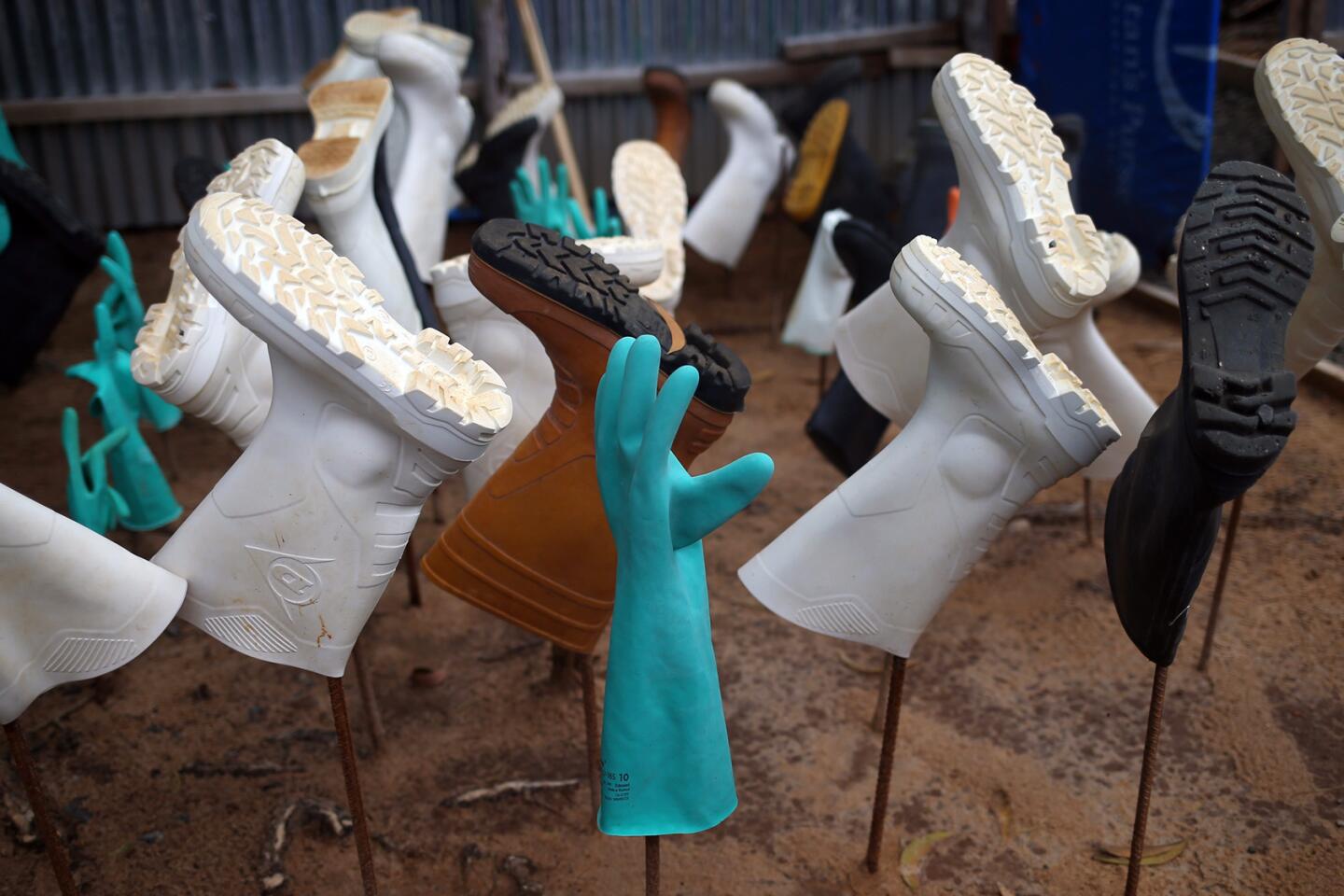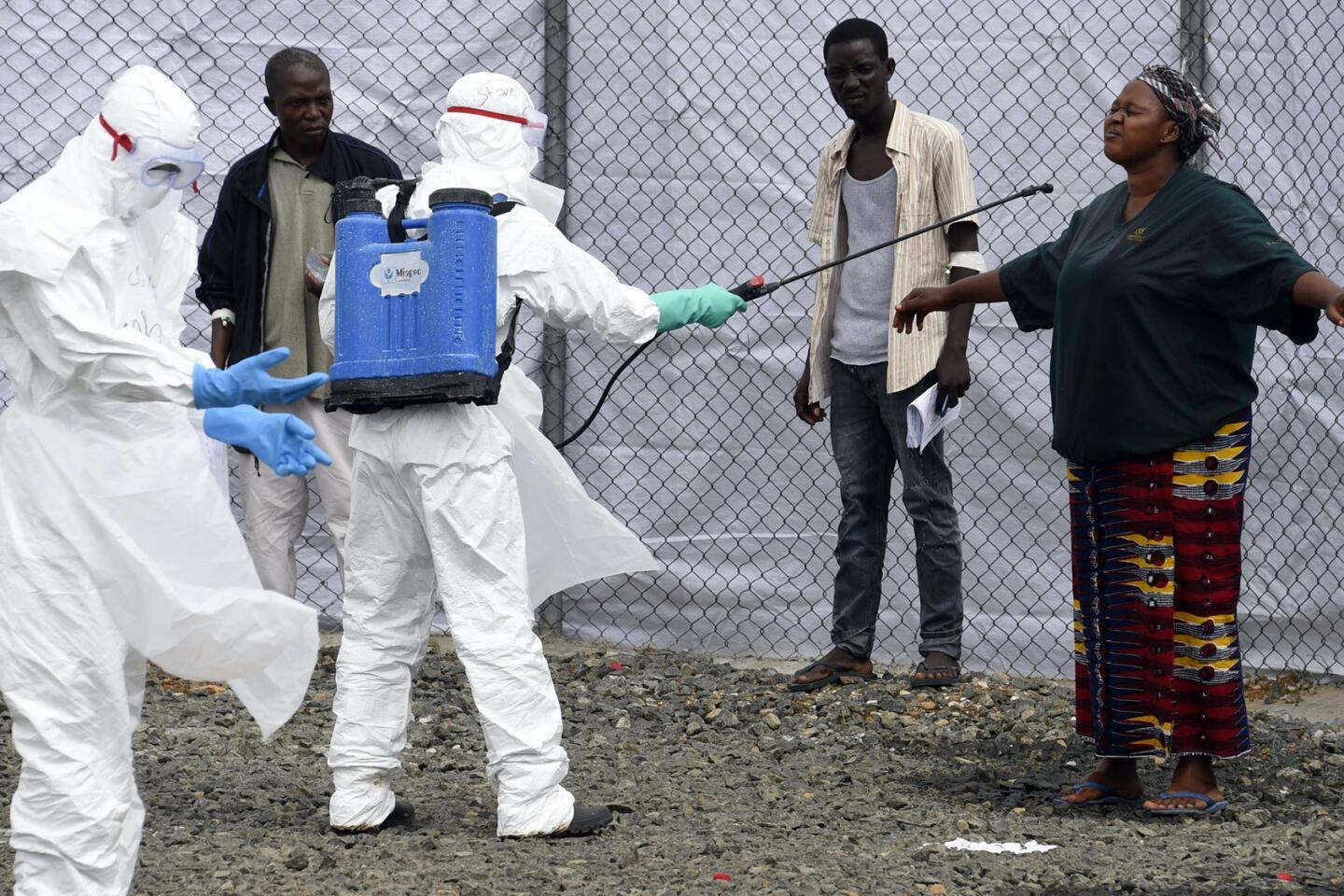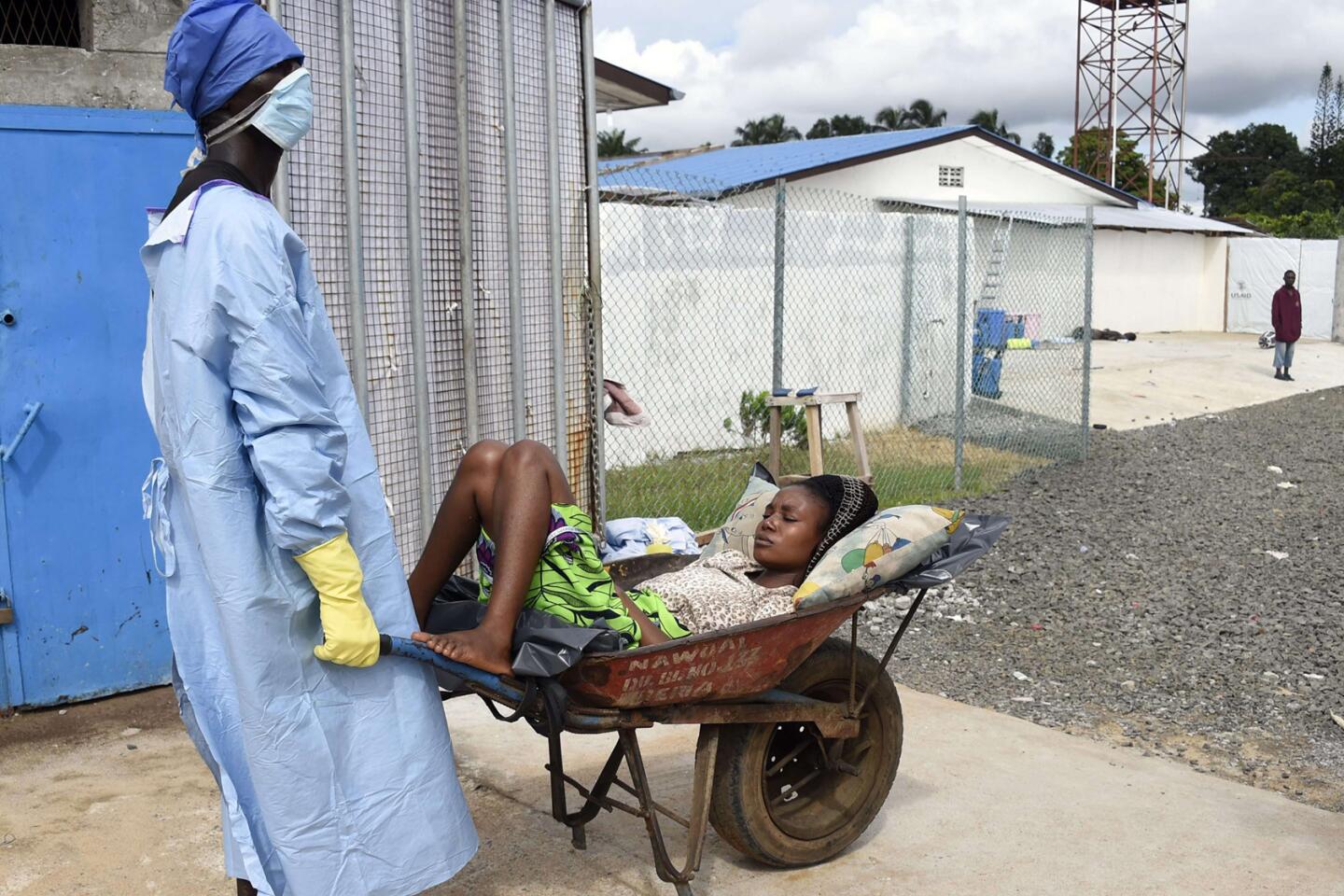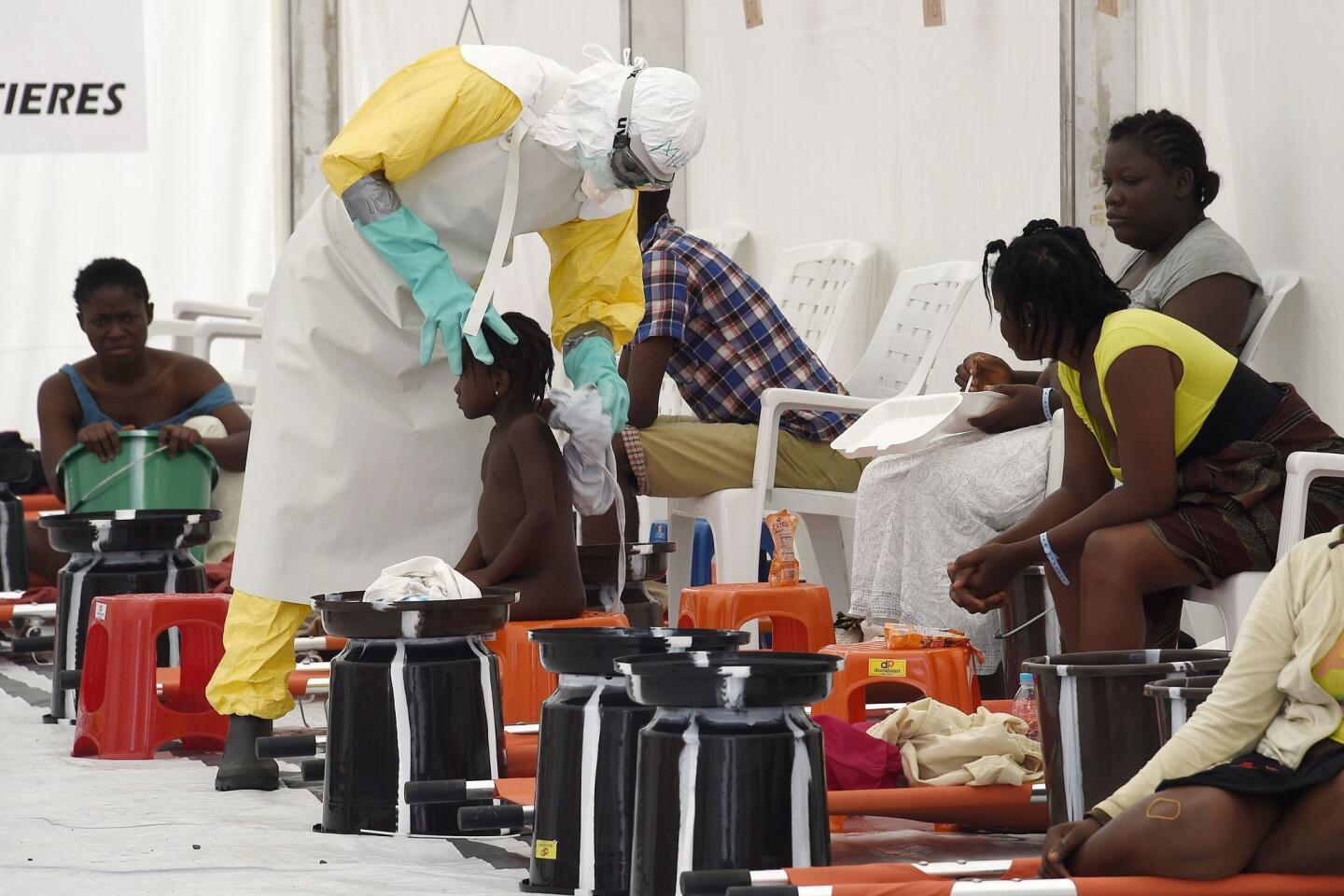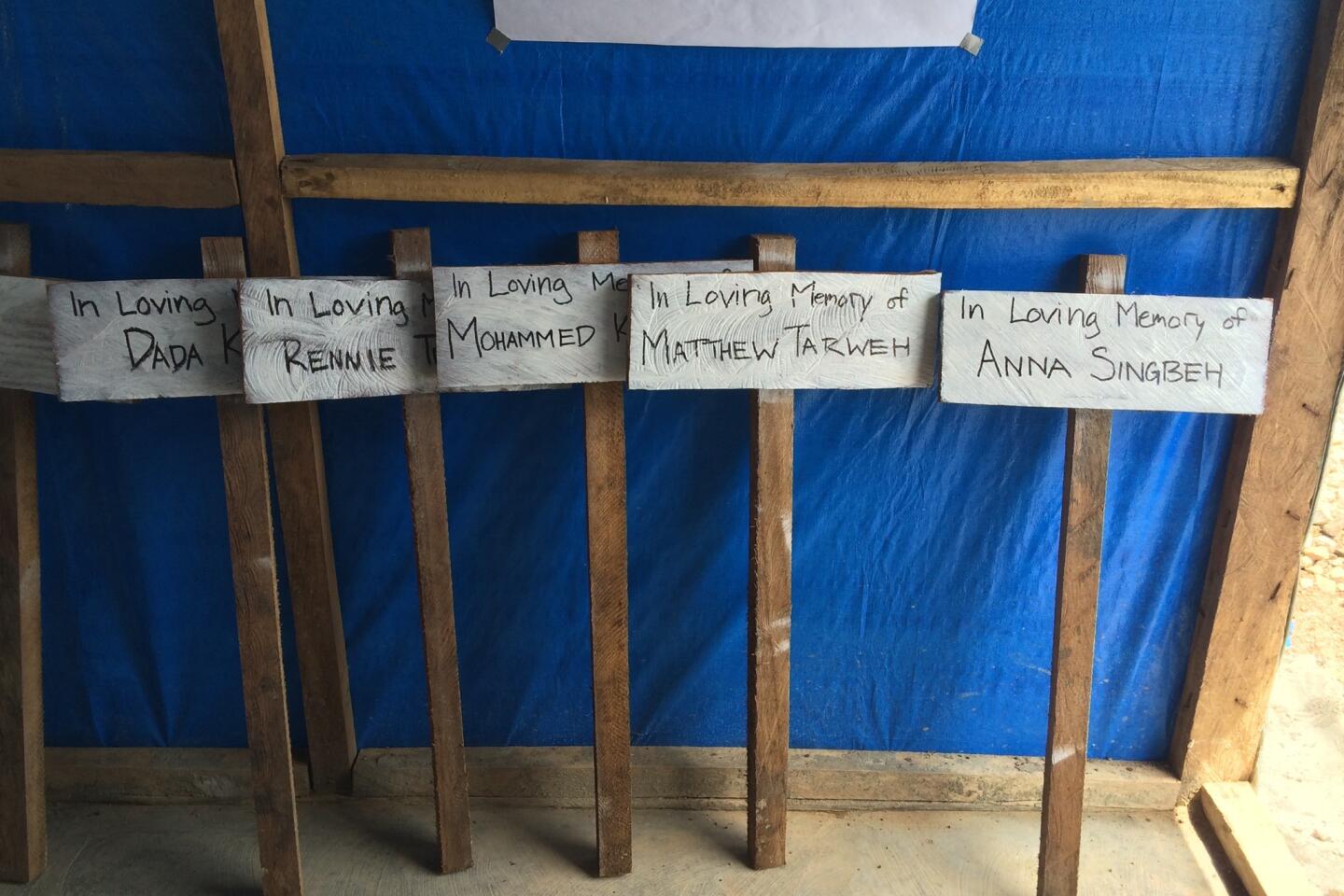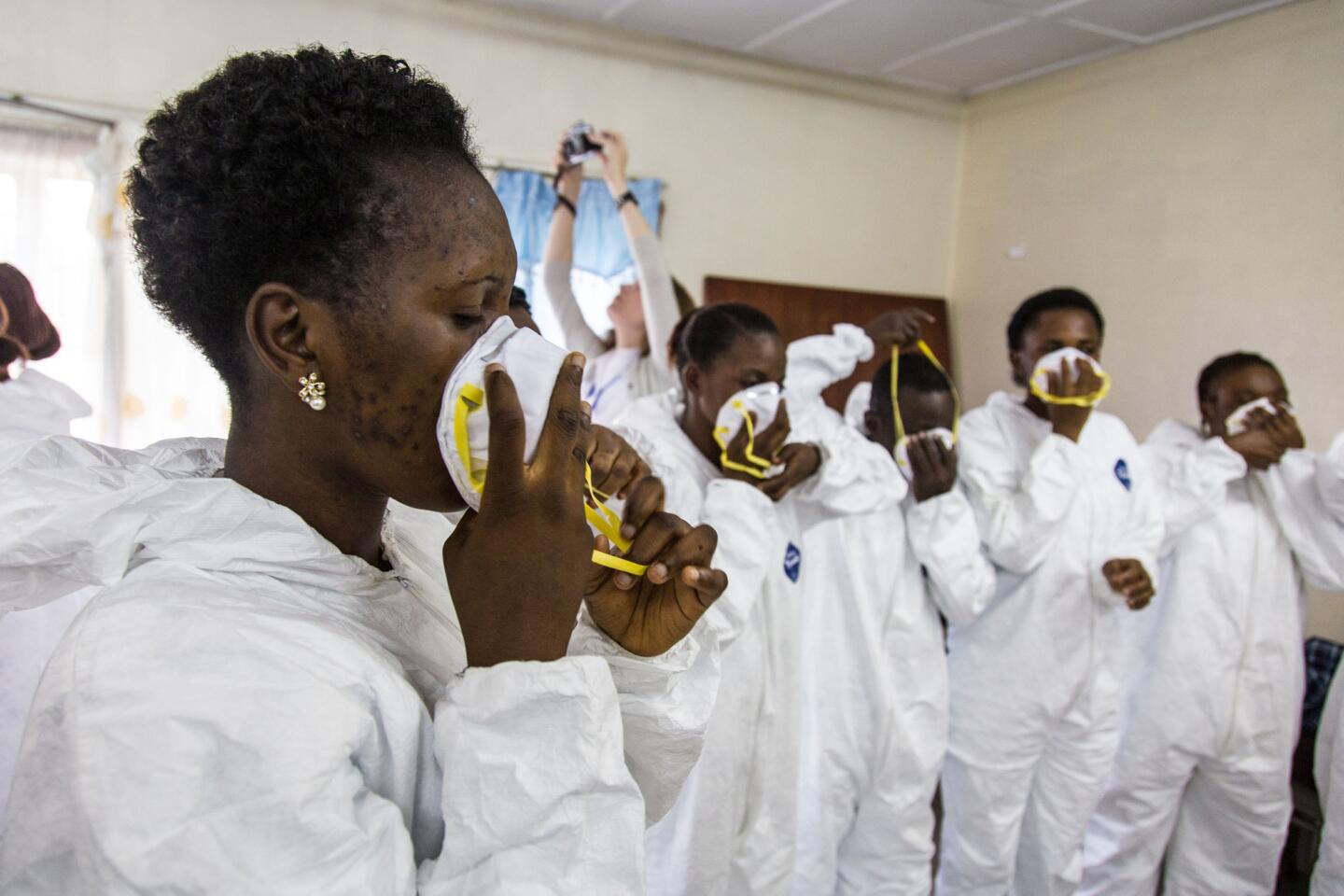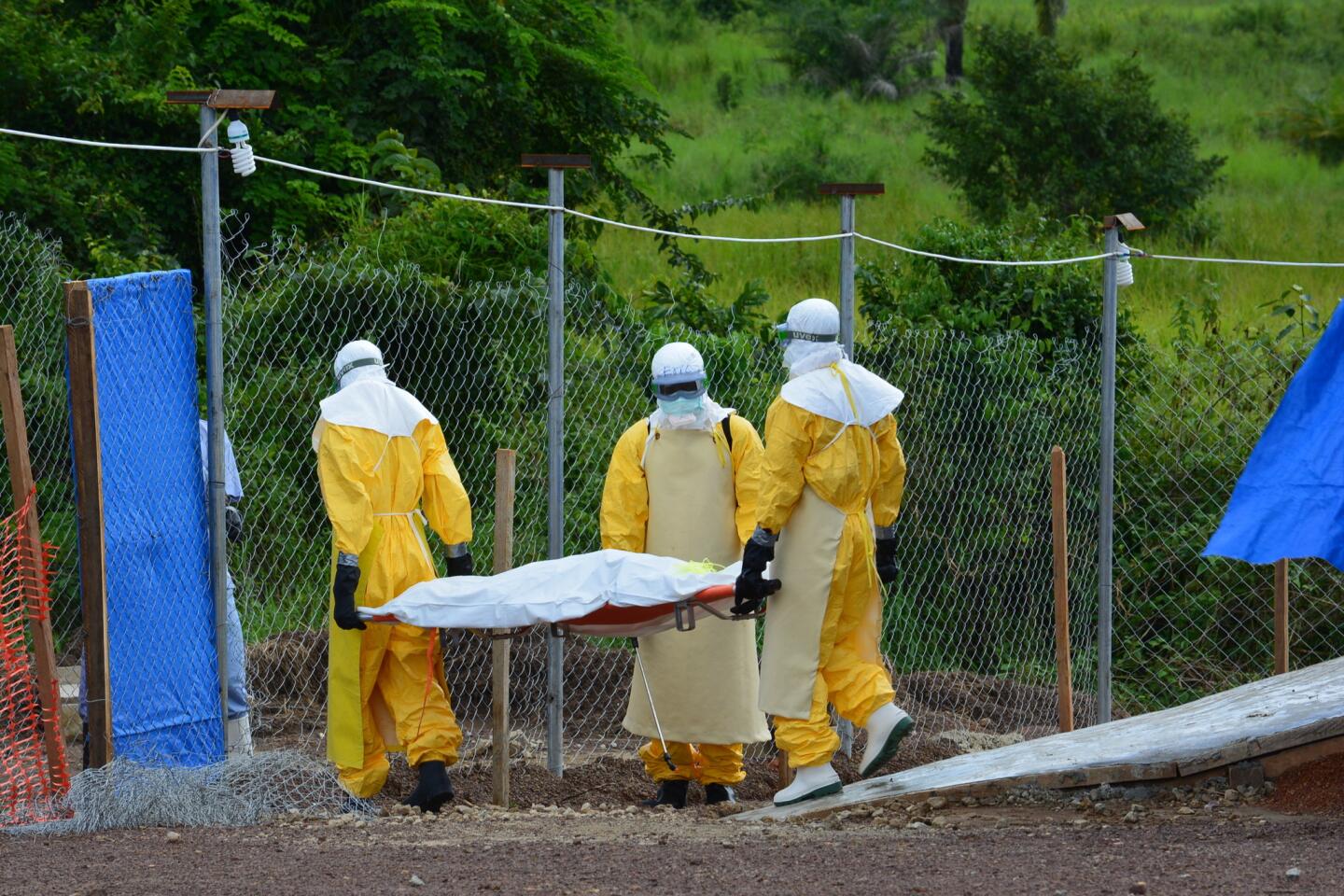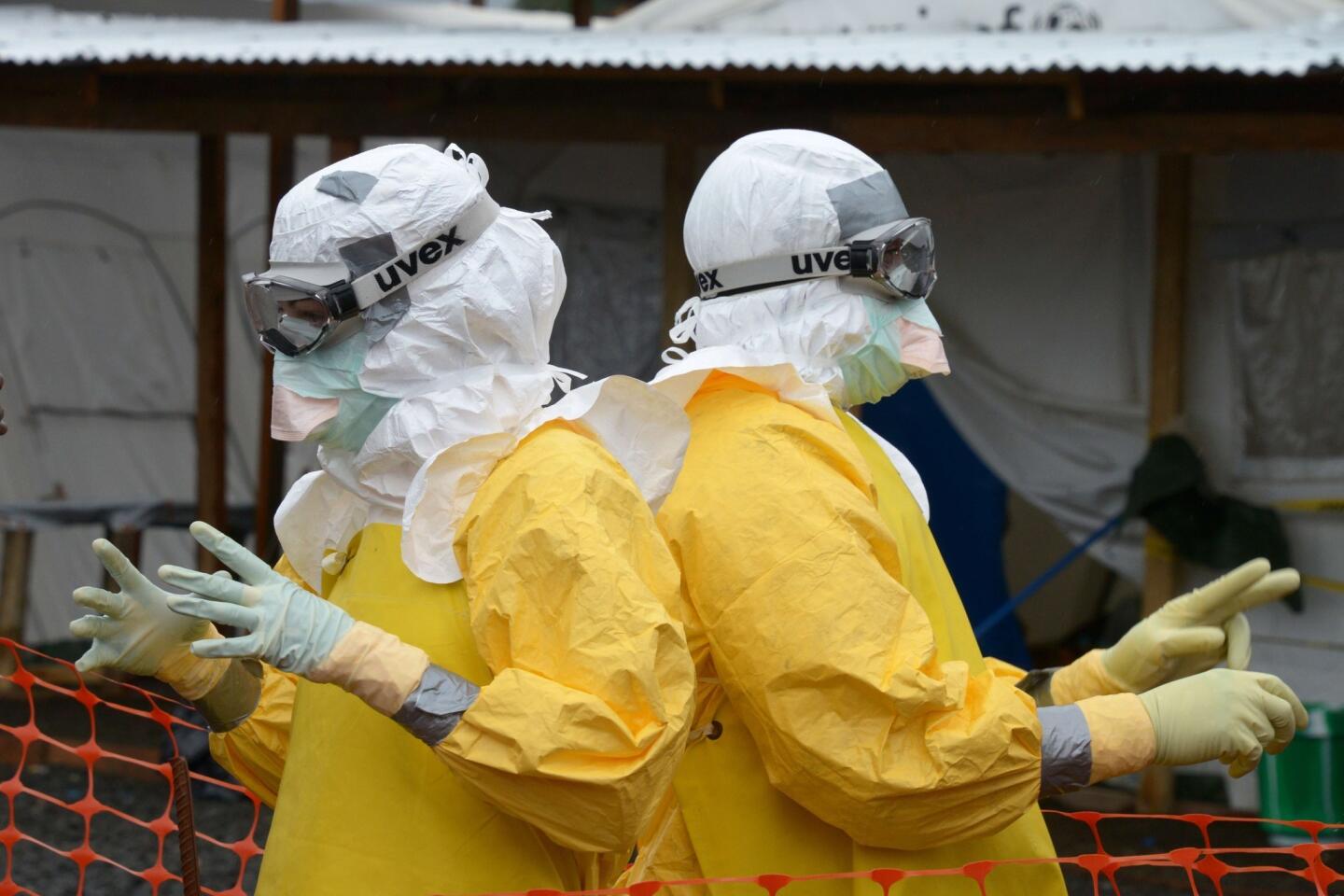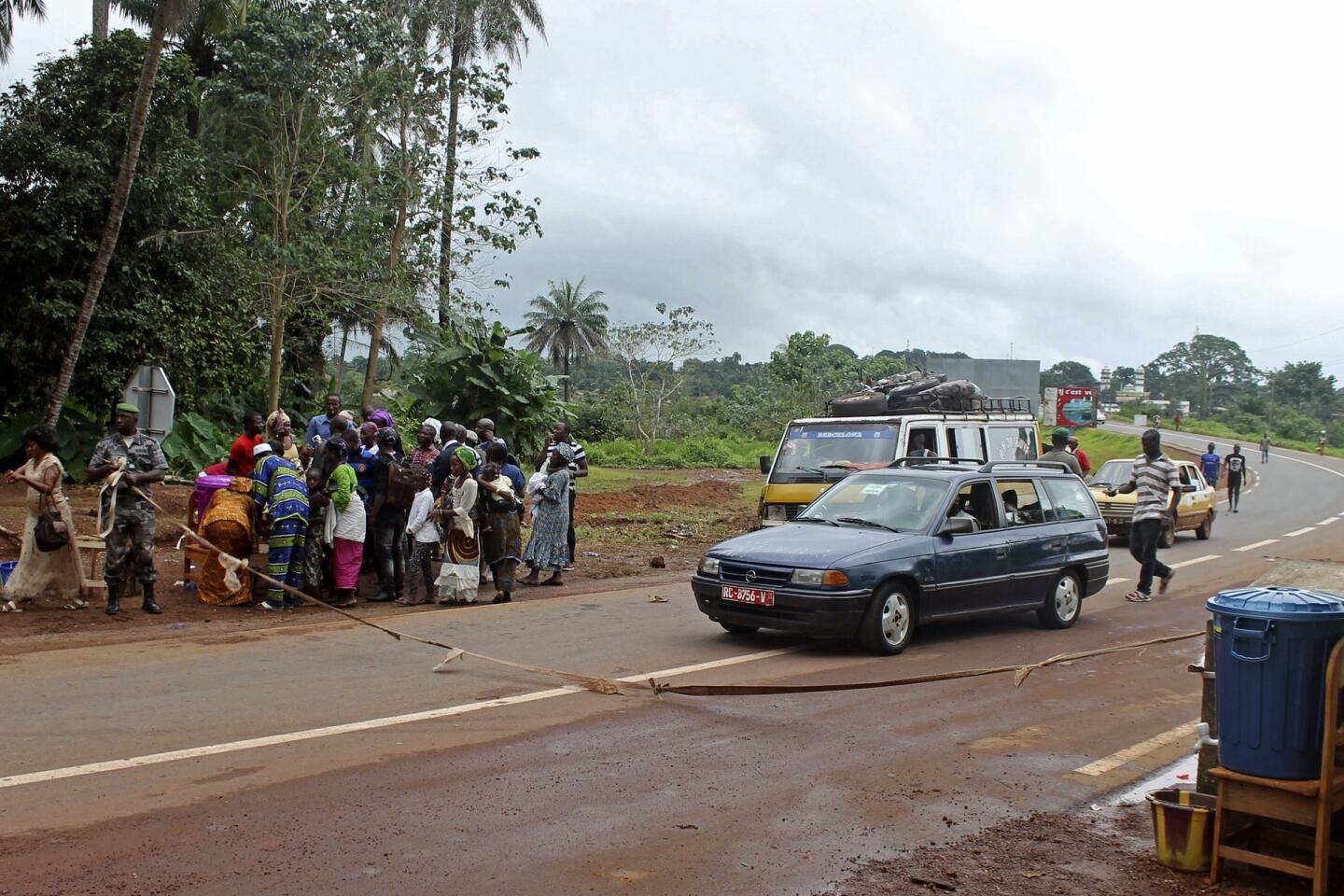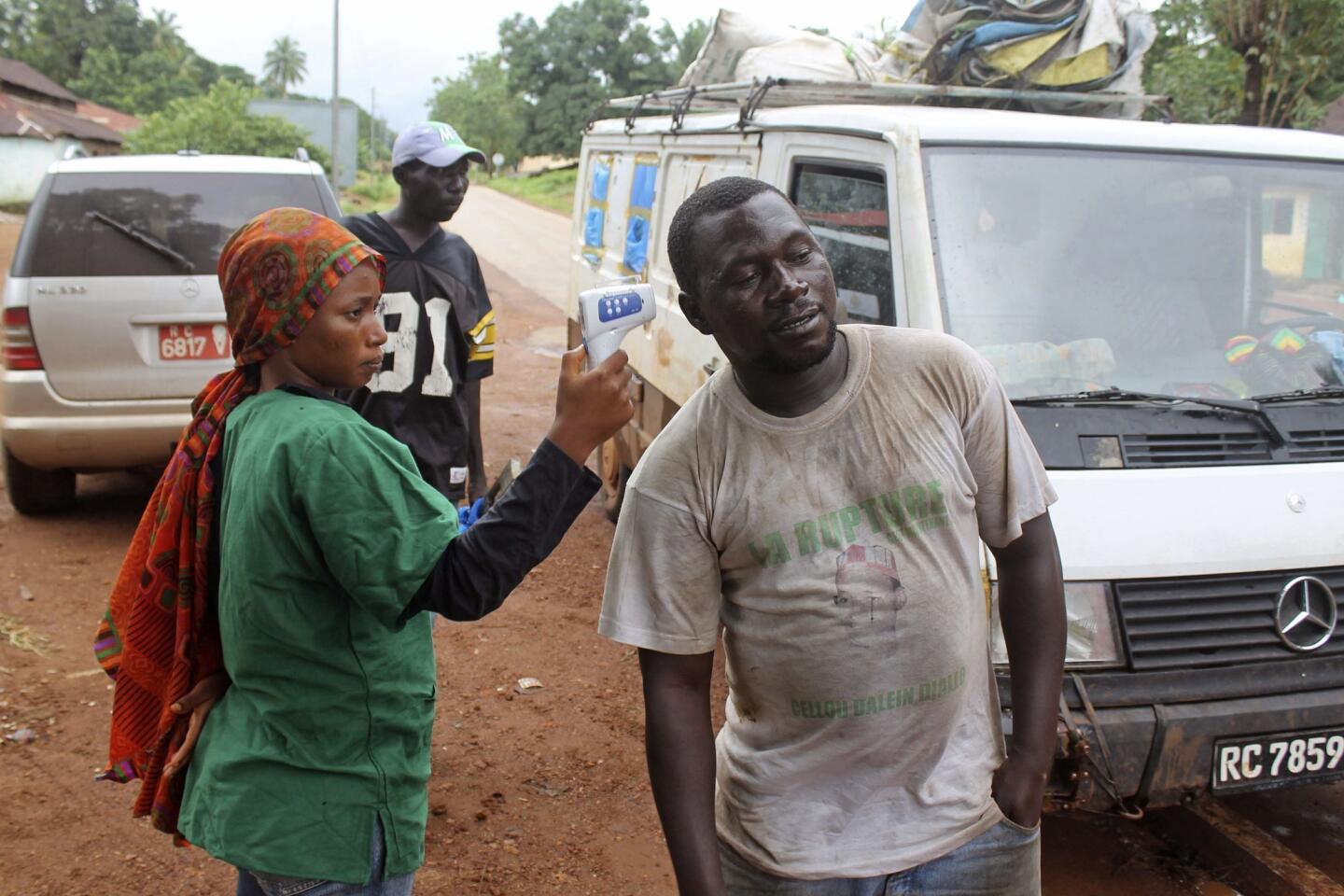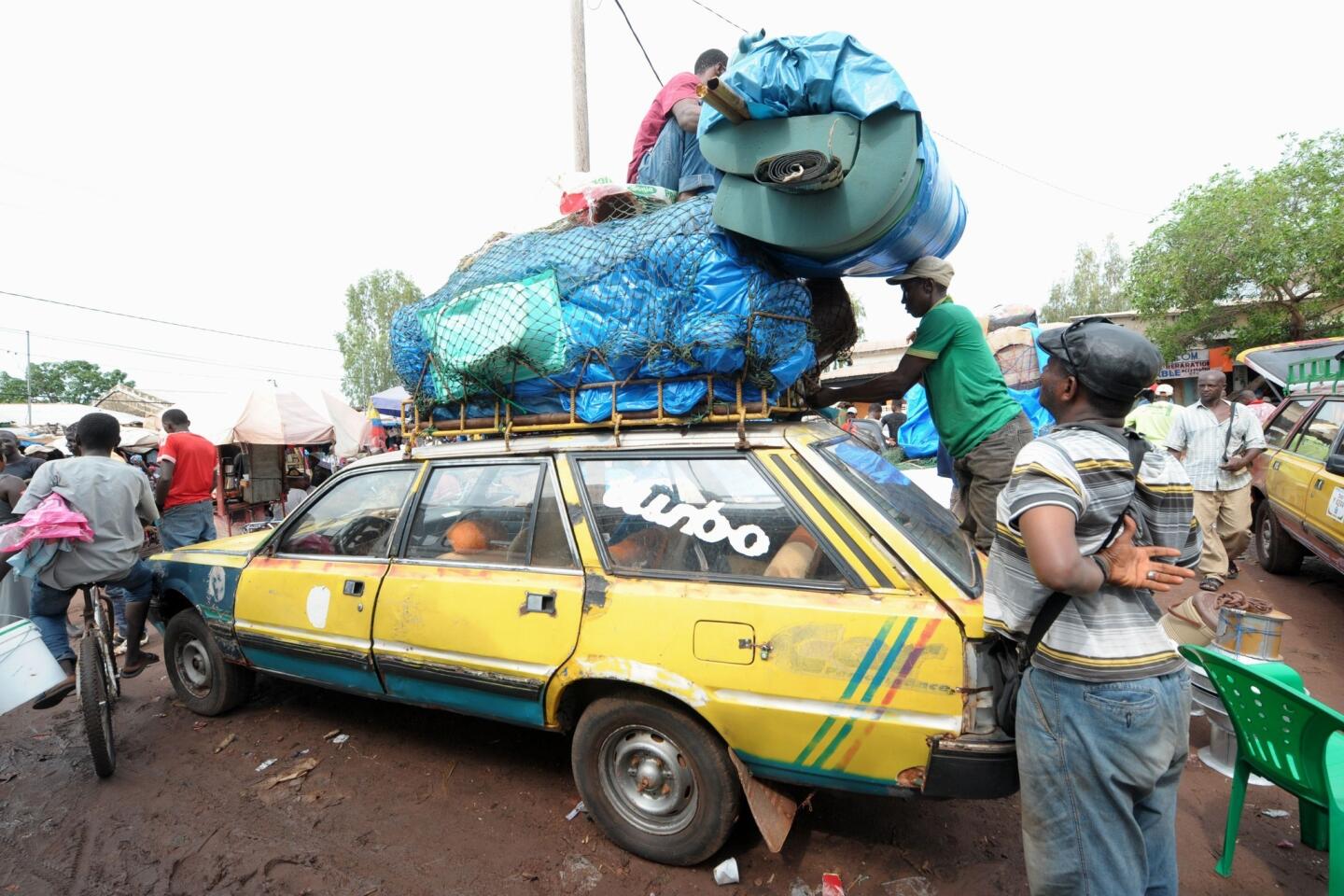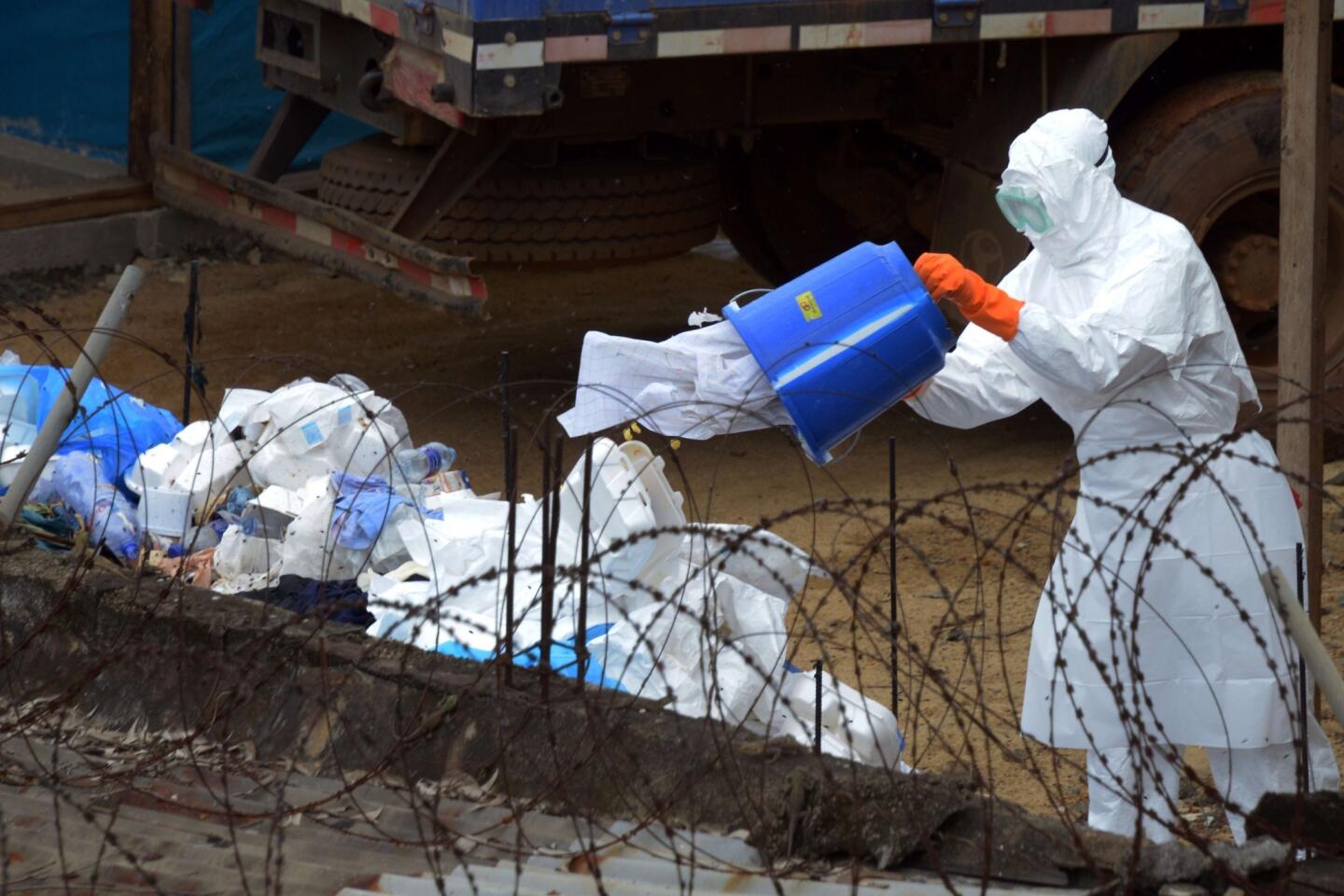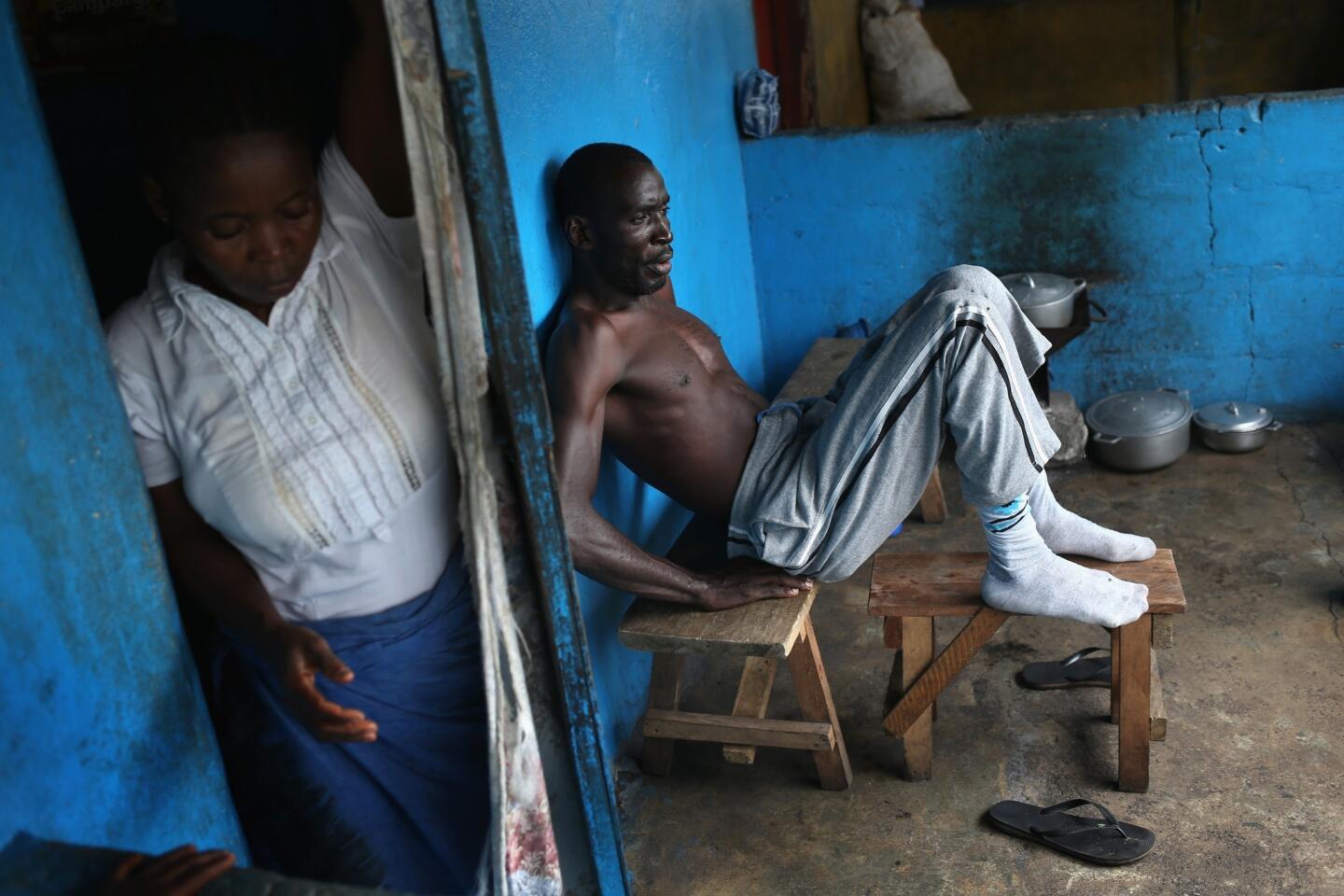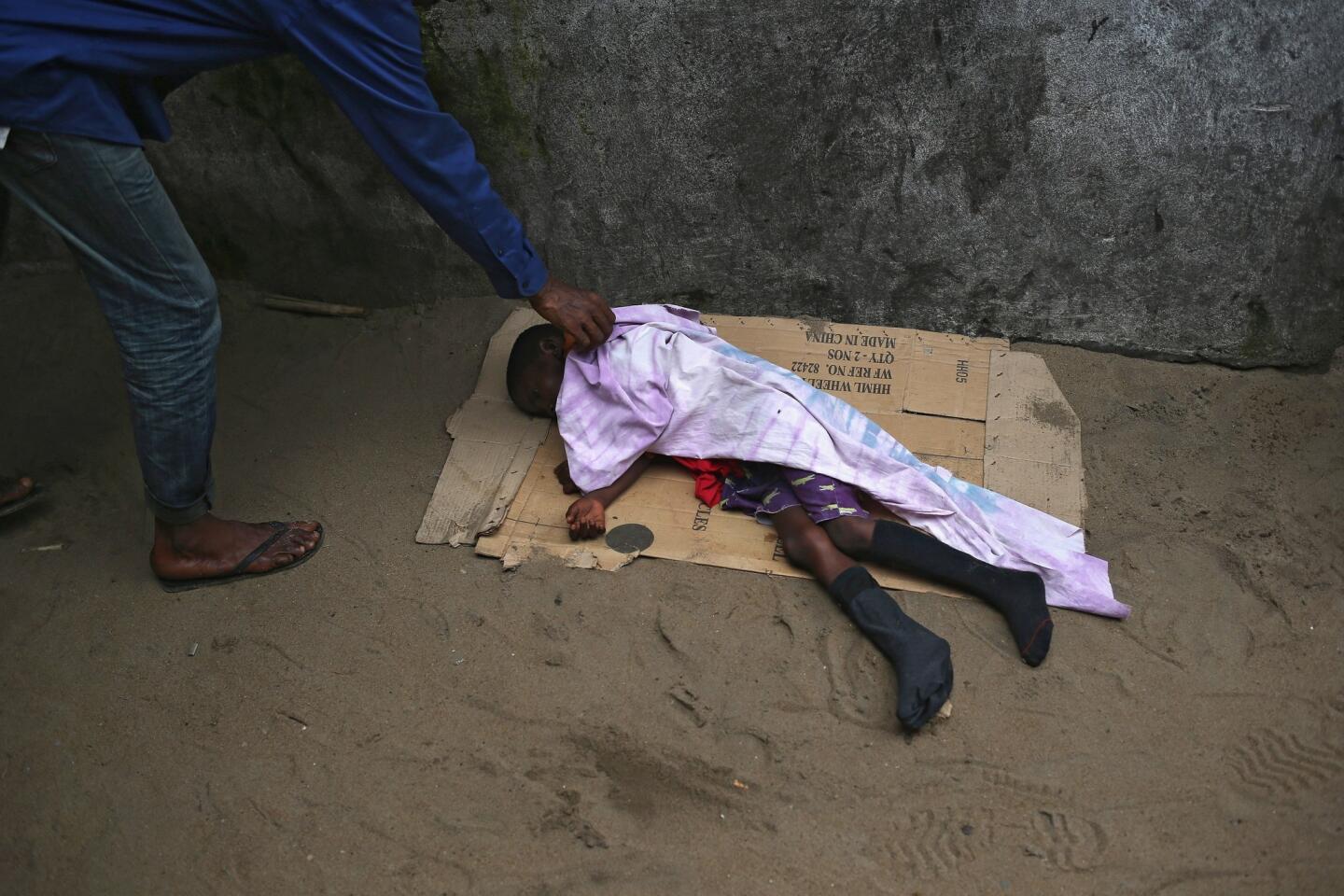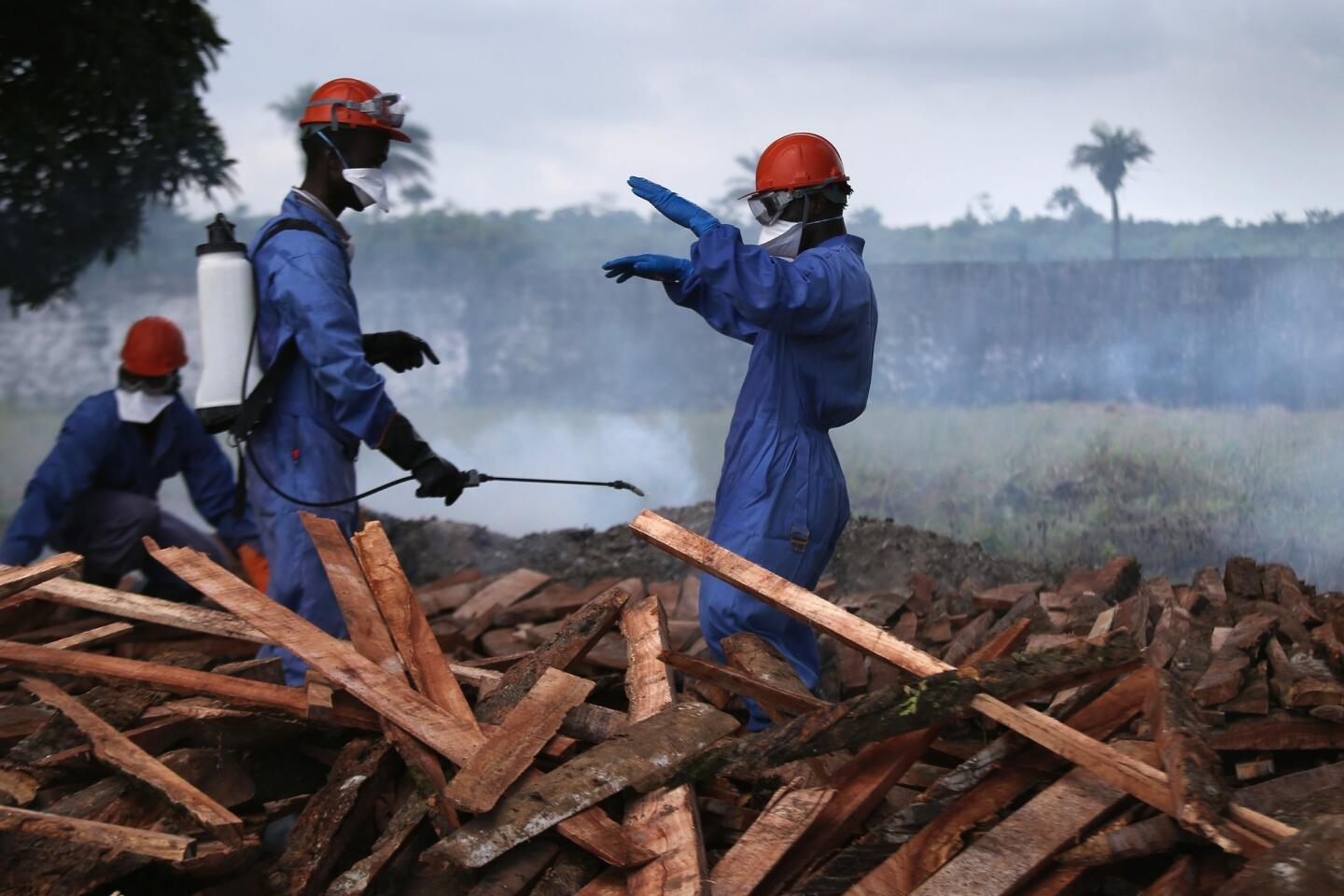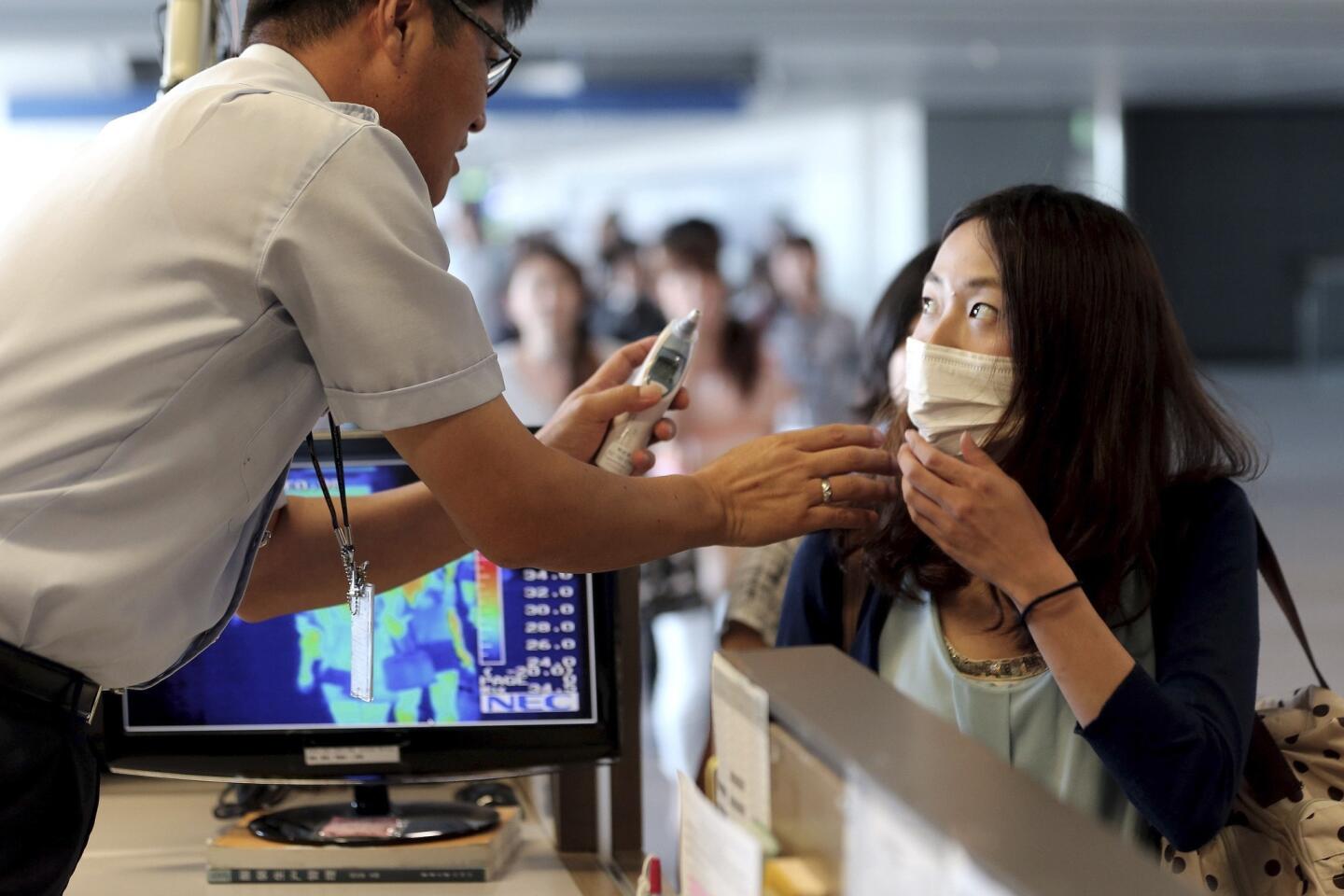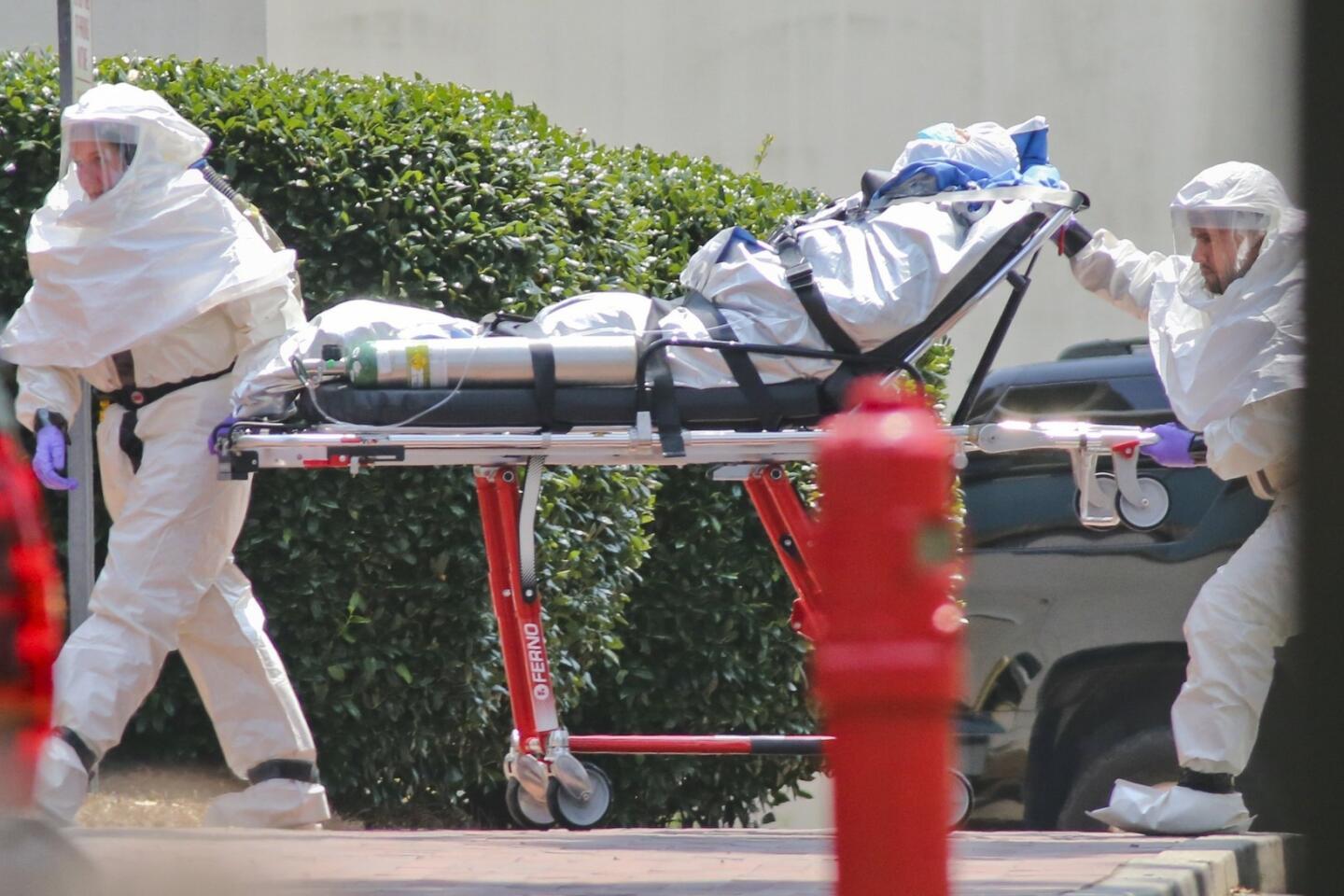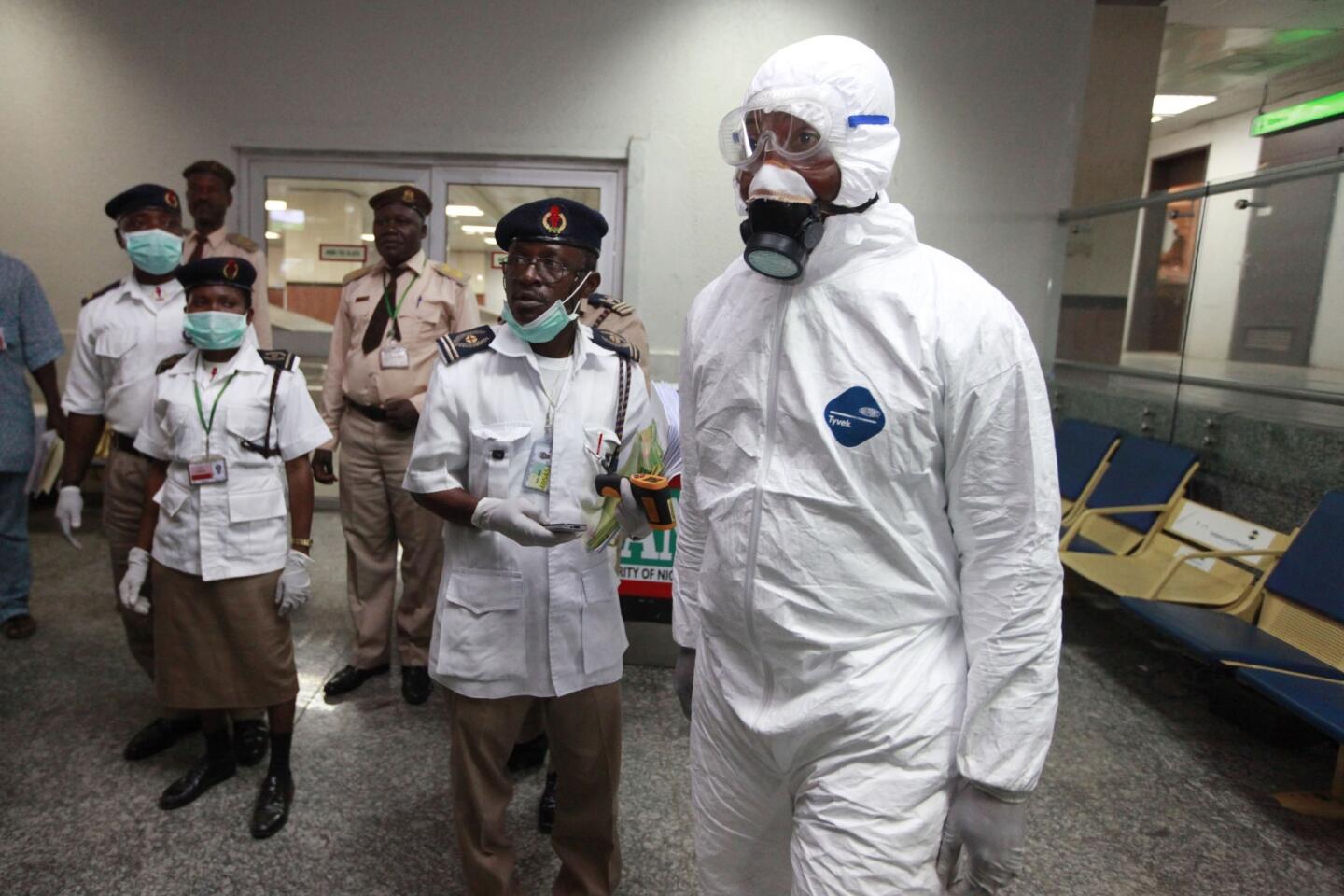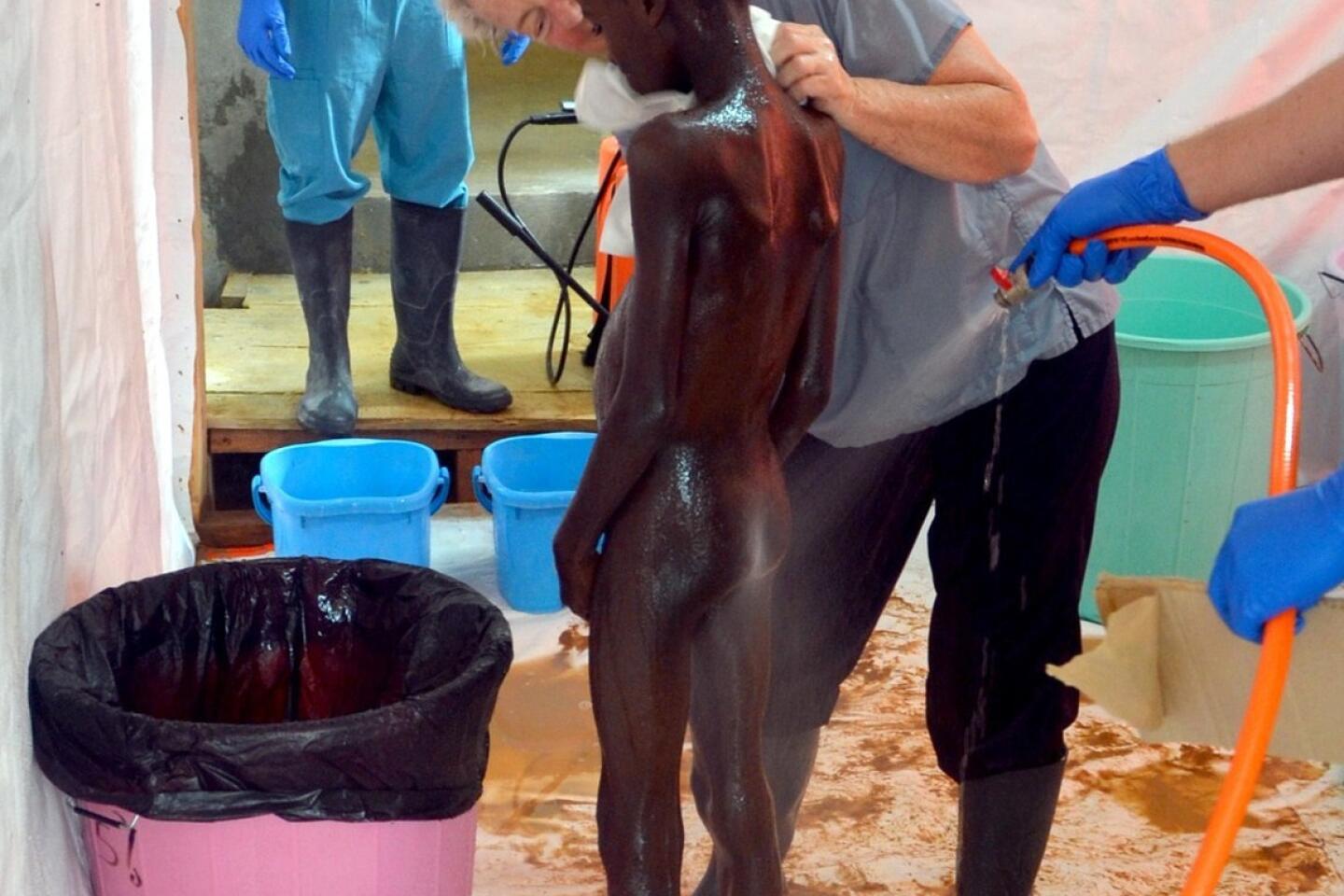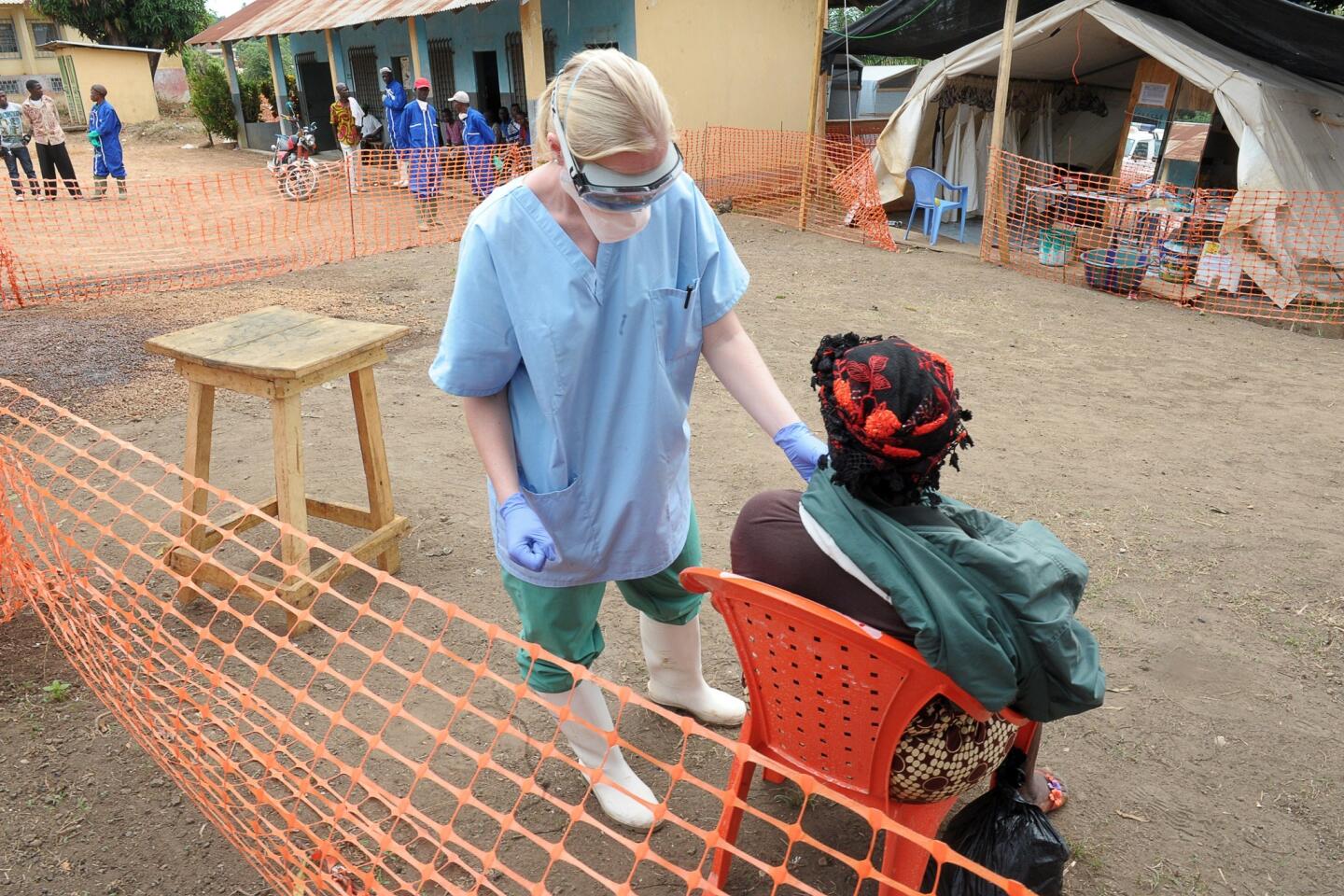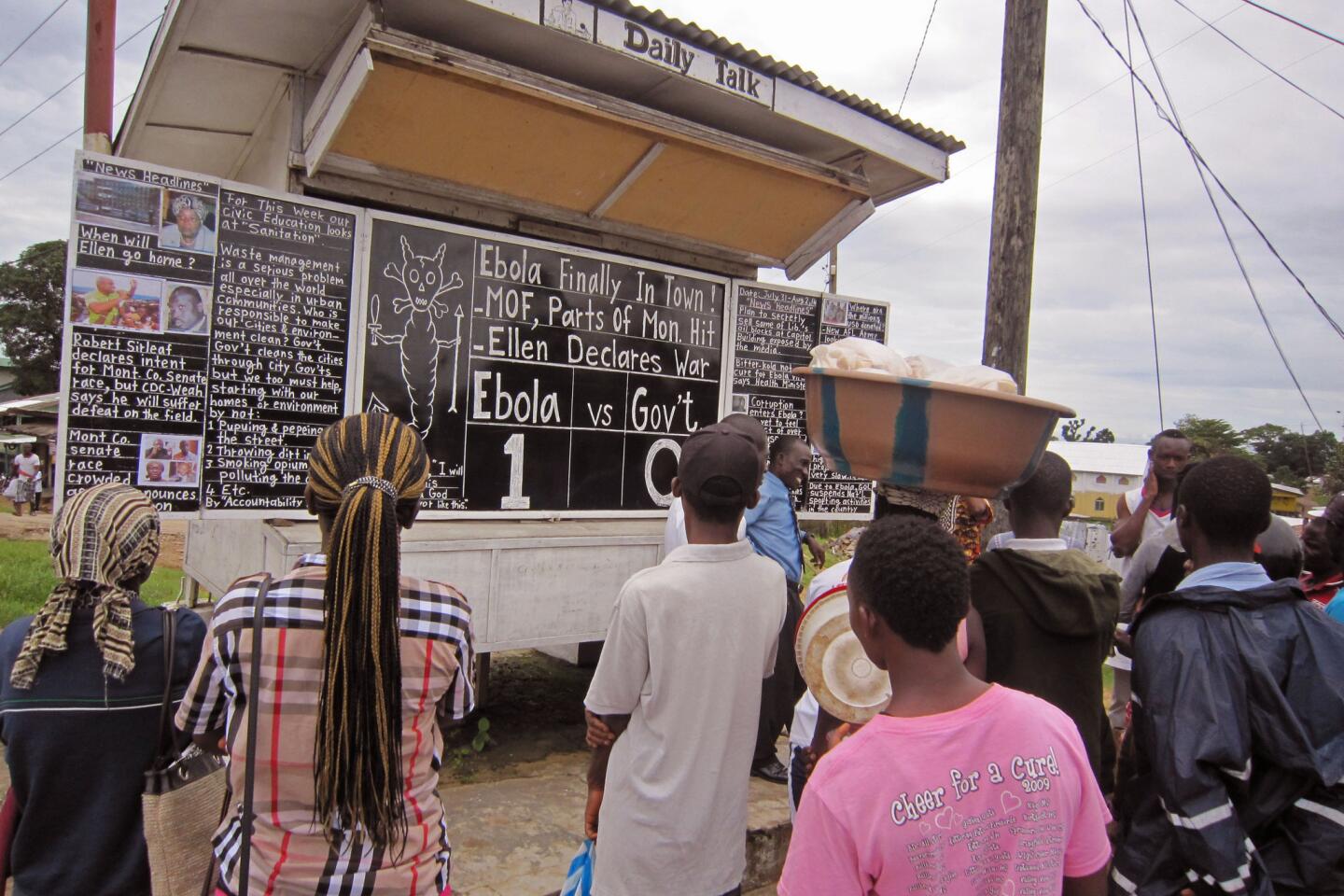Editorial: Who will pay to stop Ebola?
- Share via
Now that the American public has had a chance to see that the very few cases of Ebola in this country have little chance of leading to a dangerous outbreak, it’s time to return our attention to the three West African nations where the virus is a daily and deadly threat.
President Obama has proposed doing just that with a call to allocate $6.2 billion, on top of the $1 billion the U.S. government already has committed, to fight Ebola. Some of that money would be for better monitoring and tracking within the United States, but the bulk of it would go toward escalating the battle in West Africa, both for treatment now and for the development of future vaccines or treatments.
It’s frustrating that many countries have not been as generous as the United States and, relative to its size, Cuba in offering aid to Liberia, Guinea and Sierra Leone. Australia, for instance, banned many travelers from the three Africa countries from obtaining Australian visas without offering any real assistance to contain the disease in Africa. Only last week — after withering criticism from the Australian news media — did the government ramp up its effort. And even now it isn’t sending any of its desperately needed medical personnel to help in the anti-Ebola effort, but rather will contract with a private provider to run a 100-bed facility. Last week, World Bank President Jim Yong Kim lambasted the many Asian nations that have contributed little or nothing.
The do-little attitude of other nations should not keep the United States from going forward with the significant new aid proposed by Obama. There are signs of some abatement in Ebola’s spread in Liberia, where the United States has concentrated its efforts, an indication that the healthcare investment is starting to pay off.
But it does mean that the time has come for a global conversation about rebuilding the finances and structure of the World Health Organization, which lost considerable international funding during the recession and was unable to respond effectively to the Ebola outbreak in its earliest stages. This is a problem that goes well beyond the current Ebola crisis.
Such discussions also should be a part of the 2015 United Nations Conference on Climate Change in Paris. Developing nations are expected to be particularly vulnerable to global warming’s effects, including catastrophic flooding, famine-inducing drought and outbreaks of certain diseases. How will developed nations — the biggest spewers of greenhouse gases — apportion the financial burden of humanitarian response? The world shouldn’t wait for the next catastrophe before deciding this.
Follow the Opinion section on Twitter @latimesopinion
More to Read
A cure for the common opinion
Get thought-provoking perspectives with our weekly newsletter.
You may occasionally receive promotional content from the Los Angeles Times.
